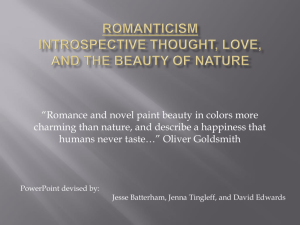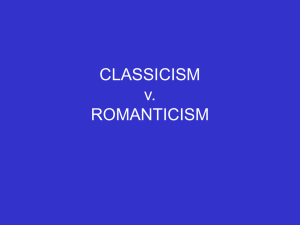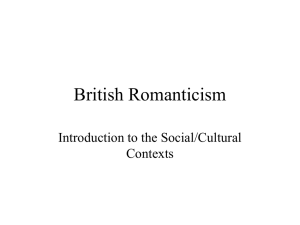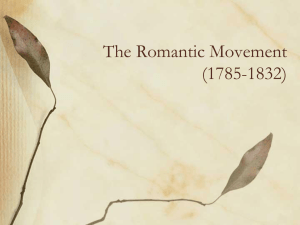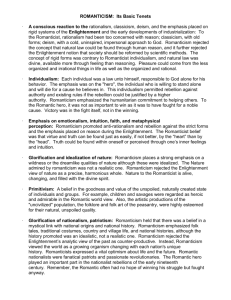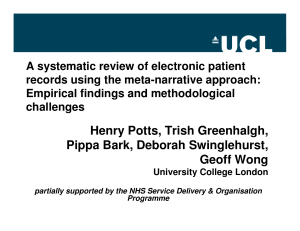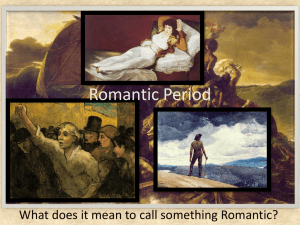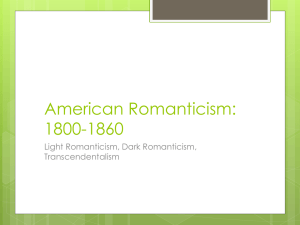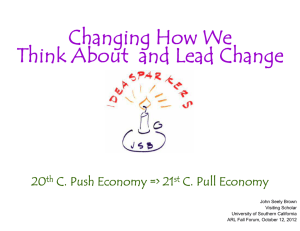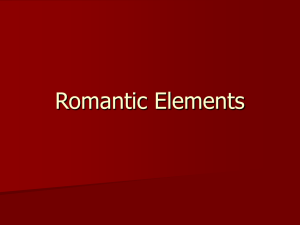Meta-narratives in Enduring Love
advertisement
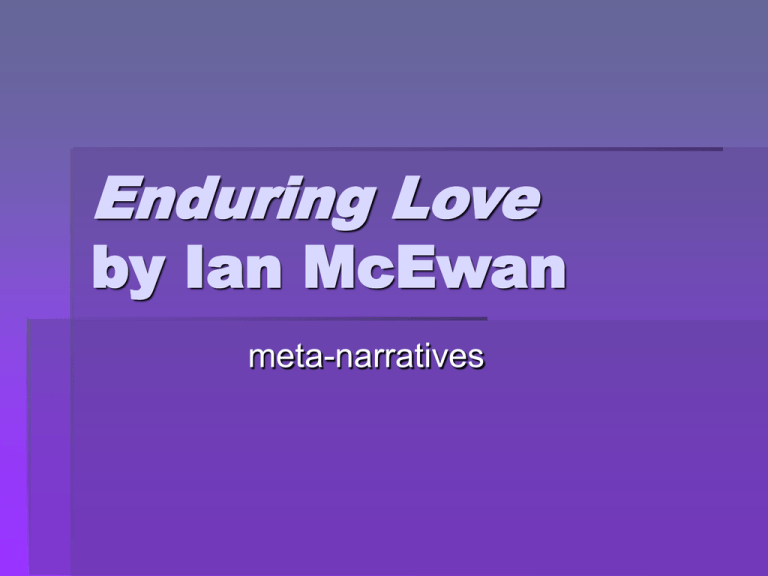
Enduring Love by Ian McEwan meta-narratives What i mean by meta-narrative. World views/explanations Dominant ideologies and beliefs that shape the way we construct knowledge and explain or justify what is ‘real’. Or How we know what we know. Importantly, these three examples reflect Western epistemologies. (or ‘worldview’) It is after all a novel by a British writer. The reason I’m going with meta-narrative is that it sits so nicely with the theme of narrative and storytelling, and the shortcoming that words have when looking to explain feelings and experiences. Note that it is the least educated character, Jed, who has the least difficulty defining the situation he finds himself in. 1. The pre-modern, religious narrative Pre-eighteenth century - religion was the dominant narrative Most phenomenon explained as the work of God This pre-modern approach is represented by Jed Parry Stories until nineteenth century often took the approach of fable, told by omniscient, god-like narrators distributing justice as required v twentieth century, or post-modern writing with its numerous viewpoints, uncertainty and ambiguity. 2. The rational/scientific narrative or Rationalism Eighteenth century enlightenment heralds the start of a new meta-narrative Reason advocated as the primary basis of authority Authority removed from aristocracy and churches Empirical evidence a founding block of Science. (observation and experiment not theory) Joe Rose represents this meta-narrative 3. Romanticism Clarissa English Lecturer whose research interest is the private life of Romantic poet, John Keats. Also look out for John Milton’s Paradise Lost references when exploring ‘the fall’. Romanticism = artistic, literary & intellectual movement Romanticism a new kind of poetry that emphasised intuition over reason and in many ways was a rejection of many of the ideas of the Enlightenment Stresses the pastoral over the urban, celebrating the sublimity of nature. often rejected classical forms and elevated language in an effort to use the vernacular or ‘real’ language. Often elevated folk heroes Explored the direct relationship between man and nature Romanticism in a nutshell 'Beauty is truth, truth beauty,—that is all Ye know on earth, and all ye need to know.‘ Last 2 lines of Keats’s Ode on a Grecian urn
